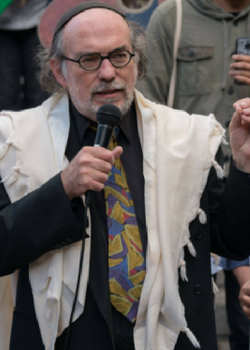The fast of the seventeenth of Tammuz is like Salieri to the ninth of Av’s Mozart—overshadowed by the fast that commemorates the destruction of both first and second Temples (Mishnah Ta’anit 4:6) and therefore overlooked in contemporary Jewish culture. Jews will still be going hungry on the lesser dawn-till-dark fast. The seventeenth still memorializes the day that Moses came down from Mt. Sinai, saw the lascivious feasting and dancing around the Golden Calf and broke the tablets that had just been given him by God. Yet, it is the twenty-five hour Fast of the ninth which is both more universally known, and which has gathered in to itself all the iniquities of the ages—from the Crusades in the twelfth century to the Final Solution in the twentieth. Yet, the breaking of the tablets is nothing to sneeze at. So, what happened?
To understand, I think we must step back and look at what else the seventeenth commemorates. The mishnah’s list is succinct: the daily sacrifice was stopped; the walls of the city were pierced (while the city was under siege in 70AD); the Torah scroll was burnt; and an idol was placed in the Sanctuary. All these things were terrible. It was probably unimaginable before it happened that they would occur; that God would let them occur; that an empire would be so ruthless. But life could still go on, albeit in a reduced or somewhat stunted way.
On the other hand, when the Temple was destroyed Jewish life came to a grinding halt. The very identity of the Jewish people was tied up in the place that God had chosen, that David had conquered, and that Solomon had built. It took a special genius and exceptional fortitude for Rabbinic Judaism to invent itself and save the Jewish people.
The seventeenth was the sign of troubled waters, of great tribulations to come. It is in the nature of signs that they can be misinterpreted or left uninterpreted. Perhaps we should embrace the fast of the seventeenth as a reminder to ourselves of the ill consequences of leaving signs left uninterpreted. After all God brought the plagues down on Egypt as Otot / signs. Pharaoh, with all his soothsayers and astrologers blew that, and he ended up, according to The Prince of Egypt (and the midrash) alone on a promontory watching his country drown in the sea.
This year, as we fast (or not) on the seventeenth, we should spend some time reflecting upon this: What signs have we missed? When should we have poured into the streets to demand democracy in Israel? Why didn’t we listen as Palestinian Israelis were telling us that, as far as they could see, a Jewish and Democratic state meant Jewish for the Palestinians and Democratic for Jews?
When should we have poured into the streets to demand racial justice and an end to police violence against Black and Brown people? Why did we not listen to Blacks who told us that the police were certainly not serving them. And there wasn’t that much protecting happening either.
Let’s make a bigger deal this year of the fast of the seventeenth of Tammuz; and also of paying attention to the signs. We do not want to experience the ninth of Av again.

